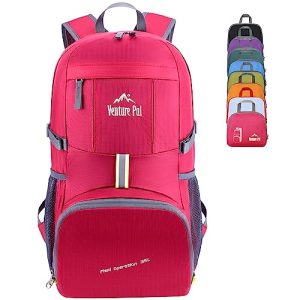Contents
Having your first baby is an exciting and life-changing experience that requires careful preparation and support. Preparing for the arrival of your first baby is both thrilling and overwhelming.
As you eagerly anticipate the arrival of your little one, there are plenty of things to consider and plan for. From creating a safe and comfortable nursery to learning about caring for a newborn, the journey towards parenthood is full of anticipation and excitement.
However, it can also bring along with it feelings of uncertainty and anxiety. In this guide, we will explore important aspects of having your first baby, providing you with valuable insights and helpful tips to navigate this transformative time in your life. Whether you are a first-time parent or have experiences to share, this resource aims to support and guide you through this incredible journey of becoming a parent.
Essential Items For Your Newborn
Preparing for your first baby? Don’t forget these essential items for your newborn. Ensure you have everything your little one needs to keep them comfortable and cared for from day one.
Creating A Comfortable Nursery
Having a comfortable nursery is essential for both you and your newborn. It’s a space where you can bond with your baby and provide them with a safe environment. Here are some key elements to consider when creating a comfortable nursery for your little one:
- Crib: Choose a sturdy crib that meets safety standards. Ensure that the mattress fits snugly and opt for a crib with adjustable height settings to accommodate your growing baby.
- Bedding: Use fitted sheets made of soft, breathable material for your baby’s crib. Avoid blankets, pillows, or bumpers, as they pose suffocation hazards.
- Changing station: Invest in a changing table or dresser with a sturdy top for diaper changes. Keep essentials like diapers, wipes, and rash cream within reach.
- Storage: Utilize storage solutions such as bins, baskets, or shelves to keep the nursery organized. Having designated spots for clothes, toys, and other baby items makes it easier to find things when you need them.
- Lighting: Consider installing a dimmer switch to adjust the lighting in the nursery. Soft, soothing lighting can create a calming atmosphere during nighttime feedings or diaper changes.
- Rocking chair or glider: A comfortable chair is a must-have for feeding and soothing your baby. Look for one with supportive cushions and armrests.
Must-Have Baby Gear
When it comes to must-have baby gear, there are a few essentials that you’ll want to have on hand. These items will make your life as a new parent a little easier:
- Baby stroller: Invest in a reliable stroller that suits your needs and lifestyle. Look for features like adjustable handles, a canopy for sun protection, and storage compartments for diaper bags and other essentials.
- Infant car seat: A car seat is a non-negotiable item for bringing your baby home from the hospital. Choose one that meets safety standards and is compatible with your vehicle.
- Baby carrier or wrap: Babywearing can be a lifesaver when you need to keep your hands free. Look for a carrier or wrap that provides proper support for your baby’s neck and hips.
- Diaper bag: Opt for a spacious and well-organized diaper bag to carry all your baby essentials. Look for one with compartments, insulated bottle holders, and a waterproof lining.
- Baby monitor: A baby monitor allows you to keep an eye on your little one while they sleep or play in another room. Choose one with video and audio capabilities for added peace of mind.
- Breast pump: If you plan to breastfeed, a quality breast pump is essential. It allows you to express milk for times when you can’t be with your baby or to increase your milk supply.
With these essential items, you’ll be well-prepared to create a comfortable and functional nursery for your newborn. Remember to prioritize safety, comfort, and convenience when selecting baby gear. Enjoy this exciting journey into parenthood!
Building A Support System
When preparing for the arrival of your first baby, establishing a solid support system is vital. Surround yourself with loved ones who can offer guidance, assistance, and emotional support throughout this new and exciting chapter in your life.
Welcoming your first baby into the world is an incredible and life-changing experience. As you embark on this beautiful journey, having a strong support system in place can make all the difference. From the invaluable support of family and friends to seeking professional help, building a robust network will provide you with the care and assistance you need during this precious time.
Understanding The Role Of Family And Friends
Family and friends play a crucial role in your life, and their support becomes even more valuable when you’re having your first baby. Here’s how they can lend a helping hand:
- Emotional Support: Family and friends are there to listen, offer advice, and uplift you emotionally. They understand the joy, anxieties, and challenges that come with having a baby.
- Practical Assistance: Whether it’s helping with household chores, running errands, or cooking meals, your loved ones can step in and lighten your workload, giving you more time to rest and care for your baby.
- Babysitting and Childcare: Trusting your family and friends to babysit or provide childcare gives you the opportunity to have some valuable alone time or enjoy a date night with your partner.
- Experience and Wisdom: Grandparents, aunts, and uncles often have a wealth of knowledge about raising children. They can offer guidance and share their experiences, helping you navigate the ups and downs of parenthood.
Seeking Professional Support
In addition to the support of family and friends, seeking professional assistance is essential as you embark on your parenting journey. Here are a few avenues where professionals can offer their expertise:
- Healthcare Providers: Establishing a relationship with a trusted healthcare provider, such as an obstetrician, midwife, or pediatrician, ensures that you receive proper medical care and guidance throughout your pregnancy and beyond.
- Lactation Consultants: Breastfeeding can be challenging for some mothers, and that’s where lactation consultants come in. They provide valuable advice and support, helping you overcome breastfeeding difficulties and ensure both you and your baby are healthy and well-nourished.
- Parenting Classes: Attending parenting classes provides you with a wealth of knowledge to navigate the various aspects of raising a child. From prenatal classes to newborn care and beyond, these classes can boost your confidence and equip you with essential skills.
- Support Groups and Online Forums: Joining support groups, both in-person or online, connects you with other parents who are going through similar experiences. These groups provide a safe space to share challenges, exchange tips, and seek advice, creating a sense of community during this transformative time.
Remember, building a support system is not a sign of weakness; it’s a testament to your strength and commitment to providing the best care for your baby. Embrace the assistance offered by family and friends, and don’t hesitate to seek professional support when needed.
Together, they will help you navigate the exhilarating journey of having your first baby.
The Magic Of Bonding
In the magical journey of having your first baby, the bond formed between you and your little one is truly extraordinary. Experience the joy and wonders of parenthood as you embark on this incredible adventure together.
Becoming a parent and welcoming your first baby into the world is an indescribable experience filled with love, joy, and countless precious moments. One of the most magical aspects of this journey is the bonding time you have with your little one.
Building a strong bond with your baby is not only vital for their emotional and physical development but also creates a foundation of love and security that will last a lifetime. In this section, we will explore two important elements of bonding: Encouraging Skin-to-Skin Contact and The Power of Eye Contact and Cuddling.
Encouraging Skin-To-Skin Contact:
Skin-to-skin contact, also known as kangaroo care, involves holding your naked baby against your bare chest. This simple act provides numerous benefits and strengthens the bond between parent and child. Here are some points to consider:
- Promotes breastfeeding: Skin-to-skin contact has been proven to enhance the initial breastfeeding experience by stimulating the release of oxytocin in both mother and baby, which supports milk production and encourages successful nursing.
- Regulates body temperature: Your baby’s body temperature stabilizes when held skin-to-skin, minimizing the risk of hypothermia and helping them maintain a healthy temperature.
- Reduces stress and crying: The warmth and familiarity of your body can comfort your baby, reducing their stress levels and soothing their cries.
- Enhances bonding: The close physical proximity and touch during skin-to-skin contact promote the release of feel-good hormones like dopamine and serotonin, strengthening the emotional bond between parent and child.
The Power Of Eye Contact And Cuddling:
Eye contact and cuddling are essential components of bonding that go hand in hand with skin-to-skin contact. These actions create a nurturing environment for your baby and foster a strong connection. Consider the following:
- Establishes trust and security: When you gaze into your baby’s eyes, it conveys love, attentiveness, and a sense of security, which helps build trust and strengthens your bond with them.
- Facilitates communication: Eye contact allows you and your baby to establish a form of nonverbal communication. By paying attention to their cues and responding to their needs, you demonstrate that they are valued and understood.
- Relieves stress: Cuddling your baby releases oxytocin, a hormone known as the “love hormone,” which promotes feelings of calmness and relaxation for both of you. This gentle touch helps your baby feel safe and nurtured.
- Stimulates brain development: Engaging in eye contact and cuddling with your baby stimulates their brain development. The emotional connection formed during these moments helps in the formation of neural pathways and promotes healthy cognitive growth.
Bonding with your first baby is a truly magical experience that solidifies the foundation of your relationship. By encouraging skin-to-skin contact, embracing eye contact, and cherishing cuddling moments, you are nurturing a bond that will grow stronger with each passing day.
Embrace these opportunities to connect with your little one, and revel in the joy of discovery and love that awaits you both.
Feeding And Nutrition
Feeding and nutrition play a vital role in the journey of having your first baby. It is crucial to ensure that your little one receives a balanced and nutritious diet right from the beginning for their healthy growth and development.
Breastfeeding Benefits And Techniques
Breastfeeding is not only a beautiful bonding experience between you and your baby, but it also has numerous benefits. Here are some key advantages of breastfeeding:
- Breast milk provides the perfect combination of nutrients that are essential for your baby’s growth and development.
- Breast milk contains antibodies that help strengthen your baby’s immune system, reducing their risk of infections, allergies, and chronic diseases.
- Breastfeeding can lower the risk of sudden infant death syndrome (SIDS), childhood obesity, and certain types of cancers.
- It promotes optimal brain development due to the presence of docosahexaenoic acid (DHA), an omega-3 fatty acid.
Now, let’s explore some techniques that can help you establish a successful breastfeeding routine:
- Positioning: Ensure your baby’s head, neck, and body are aligned when breastfeeding. Experiment with different positions, such as the cradle hold, football hold, or lying down, to find the most comfortable one for you and your baby.
- Latching on: To ensure a proper latch, your baby’s mouth should cover a large portion of the areola (the darker area around the nipple). Check for signs of a good latch, such as a wide mouth, chin touching the breast, and rhythmic sucking.
- Timing and frequency: Newborns usually feed every 2-3 hours, so it’s important to watch for hunger cues like rooting, sucking motions, or putting their hands to their mouth. Allow your baby to nurse as often as they desire to establish a good milk supply.
- Breast care: Keep your nipples clean and dry to prevent any issues. Applying lanolin cream or using breast pads can provide relief from soreness and prevent leakage.
Introducing Solid Foods
As your baby grows, they will eventually be ready for solid foods. Here are a few tips to guide you through this exciting transition:
- Readiness signs: Look for signs that your baby is ready for solids, including good head control, sitting upright with support, showing interest in food, and being able to close their mouth around a spoon.
- Starting with purees: Begin with single-grain cereals or pureed fruits and vegetables. Offer a small amount on a spoon and observe your baby’s reaction. Remember, this is a new experience, so be patient if they seem unsure at first.
- Gradual Introduce one new food at a time, waiting a few days between each new food to check for any potential allergies or sensitivities. This will help you identify any food intolerances more easily.
- Texture progression: As your baby becomes more comfortable with purees, gradually introduce mashed or finely chopped foods. Offering a variety of textures will help them develop their oral motor skills.
- Avoid common allergens: It’s recommended to avoid introducing allergenic foods, like peanuts, tree nuts, eggs, and shellfish, until around 6 months of age to reduce the risk of allergies. Consult your pediatrician for personalized guidance.
Remember, every baby is unique, and their feeding journey will unfold at their own pace. Stay attuned to their cues and enjoy this special bonding time as you nourish and watch them grow.
Milestones To Cherish
Experience the joy of reaching unforgettable milestones as you embark on the incredible journey of having your first baby. From the first kick to the first smile, every precious moment is one to cherish forever.
Welcoming your first baby into the world is an incredible journey filled with moments to cherish forever. As they grow and develop, each new milestone is a cause for celebration. From their first smile and laugh to crawling, walking, and talking, every step of your baby’s development is a precious memory that will stay with you forever.
The First Smile And Laugh
Witnessing your baby’s first smile is a heartwarming moment that melts away any fatigue or stress. It’s an indication that they are recognizing and responding to the world around them. As their smiles become more frequent, your baby will start to laugh, and their laughter will be music to your ears.
Embrace these joyous moments and let them fill your heart with happiness.
- Their first smile: This milestone generally occurs between 6-12 weeks of age. Your baby’s smile can be a response to seeing your face, hearing your voice, or experiencing a sense of contentment. Cherish this precious moment and be sure to capture it with a photo or a video!
- Their first laugh: Around 3-4 months of age, your baby will begin to giggle and laugh. Their laughter may be triggered by tickles, funny faces, or even simple games of peek-a-boo. Enjoy the infectious sound of their laughter and revel in the joy it brings to both of you.
Crawling, Walking, And Talking
As your baby grows, they will embark on a journey of physical and verbal development. Crawling, walking, and talking are major milestones that showcase their independence and growing abilities.
- Crawling: Usually occurring between 6-10 months of age, crawling is an exciting milestone that allows your baby to explore their surroundings. From mastering the “army crawl” to eventually moving on all fours, crawling signifies their increasing strength and coordination.
- Walking: Around their first birthday, your baby will take their first steps independently. The transition from crawling to walking is a thrilling milestone filled with wobbles and falls. Remember to support and encourage your little one as they gain confidence in walking and discover the world from a new perspective.
- Talking: As your baby approaches their first birthday, they will begin to utter their first words. From simple sounds and babbling to actual words, their language development is a remarkable milestone. Encourage their progress by speaking to them frequently, using simple words and phrases to foster their communication skills.
Watching your baby grow and achieve these milestones is an awe-inspiring experience. Cherish each step of their journey, embracing the laughter, the first steps, and the words that fill your life with joy. These cherished moments will create lifelong memories and commemorate the incredible journey of having your first baby.

Credit: www.wspa.com
Childproofing Your Home
Childproofing your home is crucial when preparing for your first baby. Ensure their safety by securing cabinets, covering electrical outlets, and using safety gates to protect their curious exploration.
Welcoming a new baby into your home is an exciting and joyful experience. It also means that you need to take extra care in making sure your home is safe for your little one. Childproofing your home is an essential step in ensuring their safety and well-being.
In this section, we will explore some tips and strategies for creating a safe environment and preventing accidents and injuries.
Creating A Safe Environment
- Secure furniture and appliances: Anchor heavy furniture and appliances to the wall to prevent tipping. Use brackets or straps to keep them secure.
- Use safety gates: Install safety gates at the top and bottom of stairs, as well as in doorways or other areas that might pose a risk for your baby.
- Cover electrical outlets: Use outlet covers or outlet plugs to prevent your baby from sticking their fingers or objects into electrical sockets.
- Remove choking hazards: Be sure to keep small objects, such as coins, buttons, or small toys, out of reach of your baby to avoid the risk of choking.
- Install window guards and cordless blinds: Make sure your windows are safe by installing window guards or window stops. Opt for cordless blinds to eliminate any potential strangulation hazards.
Preventing Accidents And Injuries
- Keep cleaning products out of reach: Store all cleaning products, detergents, and chemicals in high cabinets or locked drawers to prevent your baby from accessing them.
- Lock cabinets and drawers: Use childproof locks or latches on cabinets and drawers in the kitchen, bathroom, and any other areas where hazardous items are stored.
- Cover sharp edges: Use corner guards or edge bumpers to cover sharp edges of furniture, countertops, and other surfaces to prevent injuries from falls or collisions.
- Install smoke and carbon monoxide detectors: Make sure you have working smoke and carbon monoxide detectors installed throughout your home, especially near sleeping areas.
- Keep hot objects out of reach: Be cautious when handling hot objects such as cups of hot drinks or pots on the stove. Keep them away from the edge of tables and countertops to prevent accidental burns.
By taking these precautions and childproofing your home, you can create a safe and secure environment for your baby to explore and grow. Remember, vigilance is key, and regular inspections and adjustments are necessary as your baby grows and becomes more mobile.
Frequently Asked Questions On Having Your First Baby
What Do I Need To Know Before Having My First Child?
Here are the essential things to know before having your first child: 1. Get ready for sleepless nights and round-the-clock care. 2. Prepare yourself emotionally and financially for the responsibilities of parenthood. 3. Seek advice from experienced parents and healthcare professionals for guidance.
4. Create a safe and nurturing environment for your baby’s growth and development.
Is The First Baby The Hardest?
The first baby can be challenging, but it’s not necessarily the hardest.
What Is The Ideal Age To Have A Baby?
The ideal age to have a baby varies for each person, and there is no specific age that is universally considered ideal.
What To Expect When You Have Your First Baby?
Having your first baby is a life-changing experience filled with joy, exhaustion, and overwhelming love.
Conclusion
As you embark on the journey of having your first baby, remember that it is a unique experience that will bring immense joy and fulfillment. From preparing the nursery to researching the best baby products, each step will be filled with anticipation and excitement.
Embrace the changes your body goes through and take care of your mental and physical well-being. Seek support from loved ones and join communities of new parents to share your experiences and gain valuable advice. Remember, there is no one-size-fits-all approach to parenting, so trust your instincts and do what feels right for you and your baby.
Cherish the precious moments, from the first smile to the first steps, as they pass by at lightning speed. Always remember that you are doing an incredible job, and as your baby grows, so will your love and bond.











